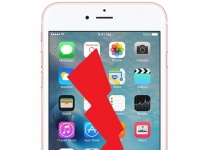 On TeleRead founder David Rothman’s The Solomon Scandals blog, Rothman links to a love song to printed newspapers by journalist Danny Bloom, “I Just Can’t Live (Without My Daily Snailpaper)”. It’s a remarkable song, full of nostalgia about various newspapers and personalities associated with them. It definitely grows on you over its 6-minute length.
On TeleRead founder David Rothman’s The Solomon Scandals blog, Rothman links to a love song to printed newspapers by journalist Danny Bloom, “I Just Can’t Live (Without My Daily Snailpaper)”. It’s a remarkable song, full of nostalgia about various newspapers and personalities associated with them. It definitely grows on you over its 6-minute length.
But at the other end of the spectrum is the TechCrunch piece in which Erick Schonfeld talks about a recent conversation with Netscape-founder Marc Andreesen.
Bringing up the legend that Cortez ordered his ships burned upon arrival in the New World to make sure there would be no going back, Andreesen says that this is also his advice to old-media companies such as newspapers and magazines when it comes to trying to adapt to the Internet: shut down the print version altogether and focus all their efforts on the web.
“You gotta burn the boats,” he told me, “you gotta commit.” His point is that if traditional media companies don’t burn their own boats, somebody else will.
Andreesen observes that with the coming of the iPad, various print papers and magazines are coming out with “tablet versions” or looking into paywalls, while web publications such as TechCrunch itself are not. He notes that the audience size of the iPad, even if it sells millions of units, will still be dwarfed by the two billion people currently on the web.
Media companies simply don’t understand the new media, Andreesen says, whereas technology companies are used to dealing with constant change. He feels that attempting to preserve the old ways of business and charge for content is shortsighted.
He comes back to the simple fact that the open Web is where the users are. Talking about paywalls and paid apps is like saying, “We know where the market is and we are not going to go there.” Print newspapers and magazines will never get there, he argues, until they burn the boats and shut down their print operations. Yes, there are still a lot of people and money in those boats—billions of dollars in revenue in some cases. “At risk is 80% of revenues and headcount,” Andreessen acknowledges, “but shift happens.”
If that’s true, then sooner or later Danny Bloom and those like him will have to get used to doing without their daily snailpaper.

































Well said, Chris, and well-reasoned. I am getting used to the handwriting on the wall, er, make taht keyed-in text on the paywall. Sooner or later, there won’t be any more print newspapers, you might very well might right. And that’s okay. Life marches on. But maybe there will be Sunday papers, once a week, kind of like newspaper magazines printed on newsprint, once a week, not for nostalgia’s sake, but as part of the culture. But yes, digital’s taking over. We all need to get used to it. Me, too. Smile. That’s what my song is really all about. Helping print people get ready for the End of the Print Newspaper as You Used to Know It, Dave Eggers not included. Or maybe Dave Eggers included. One observer calls my little ditty of an ode of a song “the world’s first musical obit for newspapers.” And she’s a former longtime newspaper reporter herself, now a retired ex-staffer from a 1981-defunct print paper in DC……
btw, funny you should mention Eric Schonfeld at TechCrunch. When I sent him a copy of the song and the lyrics he wrote back and said things I cannot repeat on a family website like this one. It was one long expletive deleted. Maybe he was having a bad hair day? I think Eric is the kind of technofascist we must be wary of, for his kind lurk everywhere and they are not nice people. O the inhumanity!
Chris, one final note on this: your headline is great and it poses a very good question: Is the daily print newspaper — like the NY Times or the Anchorage Daily News or the Sacramento Bee or Le Monde or The Japan Times in Tokyo — indispensible…. or it is unsustainable?
My take on all this is that the print paper is not indispensable, we can live and get by without them, and online platforms can do the job well too. Time marches on. But we still use radio, even though TV replaced it, and we still use candles, for birthday cakes and emergencies when the lights go out, even though we have powerful electrical grids. So the book will survive, and so will the print newspaper, but maybe in different limited circulation forms, part of a digital empire but print will still have its place on paper? Indispensable? No. Sustainable? Yes, but with a new financial model and with backing from readers and publishers and maybe the digital site supports the print paper via advertising, one hand feeds the other. Is that possible?